Spear Of Destiny - Interview with Kirk Brandon
by Denzil Watson
published: 24 / 12 / 2020
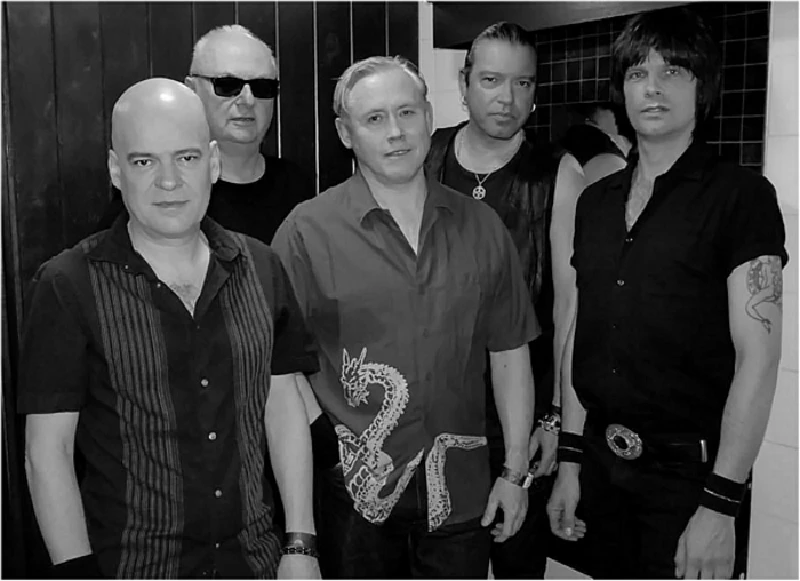
intro
Denzil Watson speaks to Spear of Destiny frontman Kirk Brandon about their classic 1985 third album 'World Service' which is being re-released in a reimagined new version.
Kirk Brandon should need little in the way of an introduction. As a singer-songwriter he’s the most prolific man of post-punk and new wave. With his two principle bands, Theatre of Hate and Spear of Destiny, he continues to record and release new material in between his band’s relentless touring schedules. While COVID-19 has put paid to gigging currently, Kirk has been busy reimagining Spear of Destiny’s classic 1985 third album 'World Service'. With the tour pushed back to next year and the release date of the re-recorded album imminent, Pennyblackmusic caught up with Kirk for an in-depth chat into this classic album. PB: I caught the 'One Eyed Jacks' tour and a lot of bands will re-release their album, put some extras on, but you've really gone the extra mile and actually re-recorded the whole album. KIRK BRANDON: Yes, we did. The decision was taken already, prior to COVID-19. It's a decision that's been on-going for a long time because the album was of its time. It was meant to be more of a ‘rock’ album. Can I say that? That was the whole idea. PB: Yeah, I saw that in the press release. KB: Yeah. The company wanted a pop album. And it should have been a real rock album. The songs are quite dramatic on it. I mean, way over the top and that's what it should have been. That was the whole concept. PB: And it's funny because I saw that in the press release, and I thought that was really interesting. So, I went back and I listened to the original and I listened to the re-record. And you really get that. On 'Once in a lifetime' and 'I Can See That'. That really illustrates that for me. It was much more rocky. KB: Yeah, and that was what we aimed at with this re-recording, Liam (Feekery, Kirk Brandon's manager) called it “reimagining”. That sounds like a movie. But in a way, yes. Reimagining as in what I’d I hoped it would have been more of its original thing. And also, I think the main thing, and I don’t know if that you agree with me or not here, was my voice has kind of matured over the years, obviously, and it's got a lot deeper. I've not got that ridiculous high three-and-a-half octave range anymore. I've not got that. What it's made up for is it's much more like a classical tenor. Yeah, it's still pretty high, but it's more like a classical tenor, up there at the top end with Roy Orbison. PB: A lot of bands have started recording stuff because they’re in lockdown, but I'm guessing you'd already decided, before COVID, that you were going to actually go the whole hog and re-record the whole thing, like you did with 'One-Eyed Jacks' (1984 Spear of Destiny second album)? KB: Yeah. Yeah, we did 'The Grapes of Wrath'(1983 debut album)!. And we did 'One Eyed Jacks' and toured it on that tour last year. It was really successful when everybody came out for that. It is brilliant. We were going to capitalise, if you like, on that on the back of that and the 'World Service' tour would have been better. Unfortunately though COVID-19 turned up and scuppered me and the rest of the world. PB: Just in terms of it originally coming out, did you intend it as a pop rock album? And if you didn’t, what sort of things took it in the pop direction? KB: Well, I think it was the choice of singles. With 'Liberator' there this is this comical story because the management, that was Terry Razor at the time, and CBS, which is now Sony, argued and they couldn't decide on what the single should be and then Muff Winwood (Ex-Spencer Davis Group bassist and executive at CBS Records) turned around and said [puts on think Brummie accent]. “Well, Kirk you decide. It’s your album” and I went, “'Liberator'” and he said, “That's it. We’ll go with 'Liberator'”. And it was done and dusted. And the company put the money into advertising as they had a spend for it, on the things in the paper and everything like that, but really they had no interest in it, to be totally honest. Really. And the thing went in at about number 50, which was incredible. But the people that do the charts came in and weighted it down at 50-something because they said that CBS had bought it into the charts. So, I turned around and said I said to CBS. “You know what, I know you didn't buy it in.” So it was ironic and comedic. It's kind of like “You guys didn't really do anything, but they weighted it against us anyway.” So it was like “Whatever!” PB: You can't make accusations like that without any out any sort of evidence! KB: And if they didn't do that, they literally didn't do it. And they did have any interest. They just thought, “It’s what he wants. We’ll give it to him. We’ll get what we want next time. We'll put the promotion into the next one. Our one.” It was a compromise as such, but no one expected it to do so well. PB: What was the mood in the band just in the run up to recording, because obviously 'One Eyed Jacks' was a really successful album and the tour was very successful too. And I guess a lot those songs you were actually playing live before you went in the studio to record them. KB: Some of them, yeah. With some of them I can't be absolutely specific. PB: So it was more of a question that you brought songs into the studio ready to record rather than you went in the studio to write stuff? KB: Yeah, we’d routined it before we even got in there. So it was all done in the rehearsal room. Some of the biggest songs of my life actually came out on the album. I mean, I personally I really don't like the way with 'Mickey' everyone kept saying, “Sing it softer. Sing it softer. Don't be angry. Sing it softer. No, no, no, no, no. Don't be angry. It’s not an angry song.” In actual fact though, it is really angry. It’s one young lad’s journey from, I always imagine, somewhere like Middlesbrough, from some place no one really cares for, apart from all of the people that live there. And it’s this kid’s disillusioned journey where he joins the army, goes to Northern Ireland, gets sent to the Falklands and gets blown up and all the stuff in between. I remember writing it in our flat in Sloane Square with Stanley (Stammers), the bass player, and I had these chords, D minor, G and A. And it just went round and round, and I did it as automatic writing. I wrote it but when I finished it I said, “Where the fuck did that come from?” The whole story, I did it on automatic. It was all there. They just came out. I just wrote it and Stanley goes, “Yeah, that’s great." PB: It's almost like you are being used as a sort of medium for the song almost. KB: Yeah, yeah. And obviously, I mean, there's all kinds of people in there and there's people in that song that are dead. And there's other people I've met, some Marines I met after the Falklands War. But this was after it all come out. And I remember being on Oxford Street and I remember these guys going, “And I want to go.”. And I turned around and there were about nine or ten Marines standing there and it was kind of, “Wow”. It was just one of them songs. But on the re-recording, I really wanted to take it away from the mini-orchestra thing and I wanted to try and make it more real. So I got Clive (Osborne, Spear of Destiny current saxophonist) to go and find a tin whistle in the key of B flat glass. And Clive went, “Oh, okay.” And he went off and he found a whistle. And he said, "They don’t do a B flat or if they do there's only one in America," and he got this thing out. It’s actually out of tune, to tell you the truth. But in the context of the song, it really works. It's like, you know the 'Madness' album, the first Madness album the sax player was playing A flat all the way through. The whole thing. And it works. PB: I suppose the wars change, the wars come and go, but the sort of resonance of the song stays the same, doesn't it, really? When you were revisiting the songs, they are very personal to you and you as know what they're about, did you think. “Actually, hang on, a lot of this is actually still really relevant right now.” KB: Yeah, I mean, come what may there'll always be some guy, some young 18-year-old from Middlesbrough. The King’s Shilling drops in his beer and why he's carted, except it’s him that’s carting himself away. There will always be lads joining up and that's a choice in life, to be a soldier is a choice. Having said that, my whole family's Forces. I’m the only generation in my family that wasn't in the Forces. Both sides of the family. So Royal Navy, Army, one of my uncles was in the Air Force in Burma. Basically, it’s Navy. Dad was like a Marine and a Commando, and his dad before him, he did thirty years in the Navy, as a Sub-Mariner. PB: When you came around to record the original album, were you a bit nervous and aware that in the past you had produced a fantastic album in 'One Eyed Jacks'? KB: No, no, I wasn't. 'One Eyed Jacks' was just chaotic. I recorded it, basically, with just Stanley and Dolphin (Taylor, drums). Then I think Neil Pyzer (piano, organ, saxophone) came along, or Alan (St. Clair, guitar) came along. Then some of the guitar parts were replaced with piano. It's a bit convoluted. It was utter madness. The producer was just coked out of his mind. He wasn't even there most of the time. He just wasn't there physically in the room. PB: So you went into 'World Service' as a unit at the height of your live powers, so quite different to the circumstances in which you did 'One Eyed Jacks' in that case? KB: Yeah. But, it was more of a challenge to do this re-recording of 'World Service', especially in the circumstances where, in the studio, it was done in Manchester with my engineer Christophe, who is French and who I always use. He's got a big studio, so we can socially distance. At the time owe recorded it, it was still very much “We're all going to die.” It’s only a matter of time before you step outside and die. You’re going to pick something up and end up dead in an alleyway in an hour. That's what everyone felt like. The bubonic plague is back. Everyone else dialled in down the phone line on the Wi-Fi, their parts. Some of it presented enormous challenges. Some went by the numbers. PB: But I have to say, I prefer it to the original. I think it's astounding and the guitars especially come across really strongly. And that's one thing that really hits you. And I suppose that's linked to the fact that you have gone for the rock album feel. KB: Yeah, I mean, I'm using this 1961 Gretsch through a vintage Marshall. That's what it should sound like. I want it to sound like that. You know, I'm using a 1951 Nocaster. It should sound like a Nocaster. I don’t want it to sound like some old jingle-jangle through some old distorted pedal. I don't use pedals, really. It should sound very, very true to how I imagine. I like them early rock and roll sounds and if you turn things up, it's still that sound. PB: And you've really given it the full make-over, haven’t you? You've reordered the tracks. 'World Service' is the first track and it works really well. And there’s a number of B-sides, which I remember from first time round and you re-recorded them. They don't sound like B-sides. I guess they never were really. KB: They really weren't. In fact 'Cole Younger' should have been on the album as opposed to 'All My Love' which just got destroyed in the studio. It ended up as this twee-sounding song. I'm not very happy about it, but it became very twee and originally it is meant to sound more like, you'll never believe it, but like Joy Division. And I ended up with this unimaginable, twee rubbish. Then on the re-recording, I approached the chords and the notes differently. The only thing that was basically a change was 'Harlan County', which on the original album was just done on the piano with the voice. The original when I did it is the way I do it on the acoustic shows is done on guitar. That's the original way of doing it. That picking kind thing. And so I got out the ‘51 Nocaster and you get that early American guitar sound, the vintage sound. There is another version of it done on the piano. There's actually another version with both the piano and the guitar. But in the end, it was just too good done with just a guitar. And no one actually knows it was originally done on guitar. So, it's kind of pre-dating the 'World Service' recording and has gone back to the way it was originally done. PB: And I suppose back in ‘85 you would be recording it with a record, a LP, in mind, wouldn't you? And the two sides. The way you’ve done it now is like it is being recorded for a CD. KB: Yeah. One of the tracks that really come up shining and that I completely forgot, was 'Somewhere in the East'. Again, Clive did some funny stuff on that as well. But he’s a genius. He’d probably just look at you like you were saying something weird to him, but he is actually the musical genius Clive. PB: I agree. I am always wary when someone does a redux or re-record of something as often you're so in love with the original and you think “What if I don’t like the re-record?” KB: This is not a rewrite job. This is just attention to detail. Attention to what it should have been. The original rock sounds. Much more guitar orientated. But that's not taking it away from the fact that there is oboe on it, piano on it, clarinet on it. This tin whistle on it. There’s all that stuff on it. PB: Have you really enjoyed the process of re-recording it? KB: Yeah, I did. You know, we had one song, 'Once in a Lifetime', that was really difficult to do with just me and the drummer and no instruments, just guitar. That was really, really difficult. That took a couple of days that did. Just to get me in right on it. PB: Were you basically playing to a drumbeat having to remember the sequence of the song? KB: Yeah, exactly. It is just like a six or seven-minute song. PB: In terms of the album as a whole, if you were given a straight choice between the old version and the new version, which one would you go for? KB: I would go with the new version. But I'm very, very aware of the fact that music is memory and memory is music. So, when you hear something, it just clicks the buttons in your head and it takes you back to when you were 18 or 24 or whatever age you were you first heard something. You're back there again. It does it for me when I listen to various albums, I will click back in. It's like a trigger, isn't it? PB: It is. The time it triggers for me was watching you on that tour at Sheffield City Hall and all the Spear fans wanting to stand up but being told they had to sit down by security. Security eventually gave up the ghost and thought, “Screw it. Stand up then.” Is there a plan to go back through all the albums and revisit them and do the same thing? KB: Certainly. One I really want to do is 'Outland'(1987 fourth album) because that was all done on computer. Don’t even ask. We used a Fairlight 3. We actually did a recording of it as demos which were actually really, really good. But the company wasn't interested and they wanted to do it using programme music at that point in time. PB: I struggle to listen to the album if I'm honest. It’s just so cluttered. KB: I can’t listen to it. It's kind of like everything had to be doing everything, all the time. PB: And I the frustrating thing is there's some really good songs there, but they've just been messed around too much in the studios. KB: Yeah, totally. And also, why were songs like 'Pumpkin Man' not on the album? PB: And 'Embassy Song'. For me that gave an indication of what the songs could've sounded like if they'd been recorded the same way. KB: Yeah, there were about three or four songs that absolutely should have been on the album. But the company didn't want to go that way. They just made that decision and I couldn't persuade them otherwise. If it had the right songs on it, what an album! So, I’m going to go back, I don’t know when yet, and have a go at it. PB: So, I guess you were really looking forward to getting out and touring 'World Service'? KB: Yeah, I really was. It is quite disheartening and the guys, you know, have been with me for a long time now, over 25 years, barring Clive and the drummer, Phil. Craig, Adrian and Stevie have been in the band the longest. It's a great bunch of guys and they're really funny. If you're going to be in a bus travelling around America, you've got to like the people you are with. They're all funny. There's a lot of alcohol involved but show me a band that there isn’t. They’re probably accountants. With rock’n’roll bands, it’s either drink or drugs. With my lot, it’s just alcohol. PB: The tour's now planned for next year, isn’t it? KB: Yeah, same time but next year. PB: I guess we can expect the album in full but are you going to play it sequentially as you've re-recorded it or are you going to mix it up a bit? KB: Yeah, we might do it sequentially as per the re-recording. PB: Did you always intend to redo the order when you redid it and swap songs? KB: Right. Yeah, I did. And the other songs like 'Cole Younger' are really important songs. So, I wanted them in the album but not just stuck at the end. PB: And beyond that, in terms of new material, are you starting to write with Spear or Theatre at the moment? KB: I've got one Spear song, one really great riff that I'm going to hang on to for Spear. I haven’t been writing that much recently. to be honest. Not really. There's been a lot of recording going on, a lot of mixing, taking up a lot of time. PBM: I liked the lyric change on 'Harlan County' where you referenced Facebook. I thought that was quite funny. KB: Yeah, “Facebook and their Twitter feeds”. On 'Cole Younger' when I wrote that song originally, I didn't really think that much about Cole Younger. It was just like a cowboy song. But in reality, Cole Younger obviously was a real person and I researched it and. as it turns out, he didn't die. He wasn't shot in the back like Wild Bill Hickok. They put him away in a prison for a long time and he became a Christian and they actually released him and he went home to a place called Lee's Summit. He lived out his remaining days there and died of natural causes. Mm hmm. And so, I changed the lyrics to say it wasn't the night that Cole Younger died. The new version is saying the night he would have died. It's subtle. You have to read into the way that I’ve changed it around. It now tells the real story. It's still a bit of a cowboy song, but he didn't actually die and at the end I just say he died in 1916 at Lee’s Summit and he lived past the Victorian age. PB: One last question. Have the original members who played on the album back in the 80s heard the new version? KB: No, not yet. PB: How do you think they'll react? KB: I know Alan will like it. Stanley will like it. I mean, they’re really honest guys, and will just say what they think. Neil plays with Pauline Black and Mickey [Duffy, saxophone, clarinet, flute] plays with Lisa Stansfield. Stanley's out in America. And Dolphin is out in America too, retired. Last time I was there, last year, I actually went out with Dolphin and Stanley. I hadn’t seen Dolphin in many years. He did this whole business thing out there and became very, very successful. The whole Bel Air thing. Wow. He has done really well. He’s a nice man. He's mellowed. He doesn’t really give a damn and is just having a nice time. Good for him. He's a great guy. PB: Many consider that live-up of Spear to be the best one. KB: I don't know what to say. I think music is memory, and you've got to respect people's memories of the time. But obviously, I can't live in 1986 every day in my life. You've got to move on and do different things. I hope that the people that like the original album will appreciate the amount of tender loving care that has gone into the re-recording and the effort that's been made on it. I remember singing 'Mickey' on the re-recording and I sung it four times and I was reduced to tears singing it. Even thinking about it makes me feel weird. It always does. I said to Christophe that I had tears running down my face, and I said to him, “Listen, mate, I can't do anymore this. There isn't anything left to give. There's nothing more I can say or sing or try and give. Or whatever. So that's it. Have we got it?”. And he said, “Yeah, we got it, three takes ago.” We really wanted to capture the journey on that song. It's not naive anymore. There's a lot of irony in it. I think, a lot of irony. But mixed in with that is a ton of emotions. PB: The emotions don't go away, do they? KB: I think it's probably one of the best things I've ever done, that re-recording, especially that song. I'm not going to better that. PB: Well, to be honest with you, I was blown away when I heard the re-recording. I just thought, “Wow, this this is better than the original,” and I love the original and remember going out to the record shop to buy it on its day of release and then almost wearing the record out. So, I think I you've achieved everything you've set out and more with this re-recorded version KB: Thank you very much. PB: Thank you.
Band Links:-
https://en-gb.facebook.com/kirkbrandonofficial/https://www.kirkbrandon.com/
https://twitter.com/kirkbrandon
https://www.instagram.com/therealkirkbrandon
https://www.youtube.com/user/SODPROMO
Have a Listen:-
Picture Gallery:-
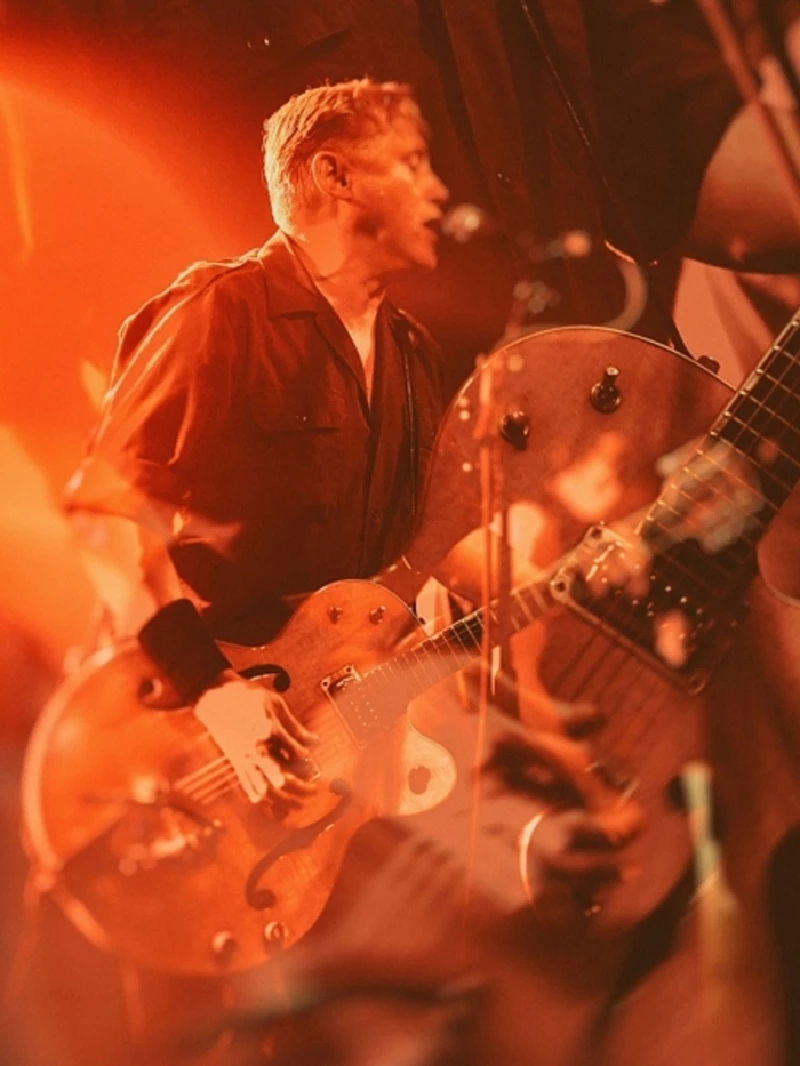
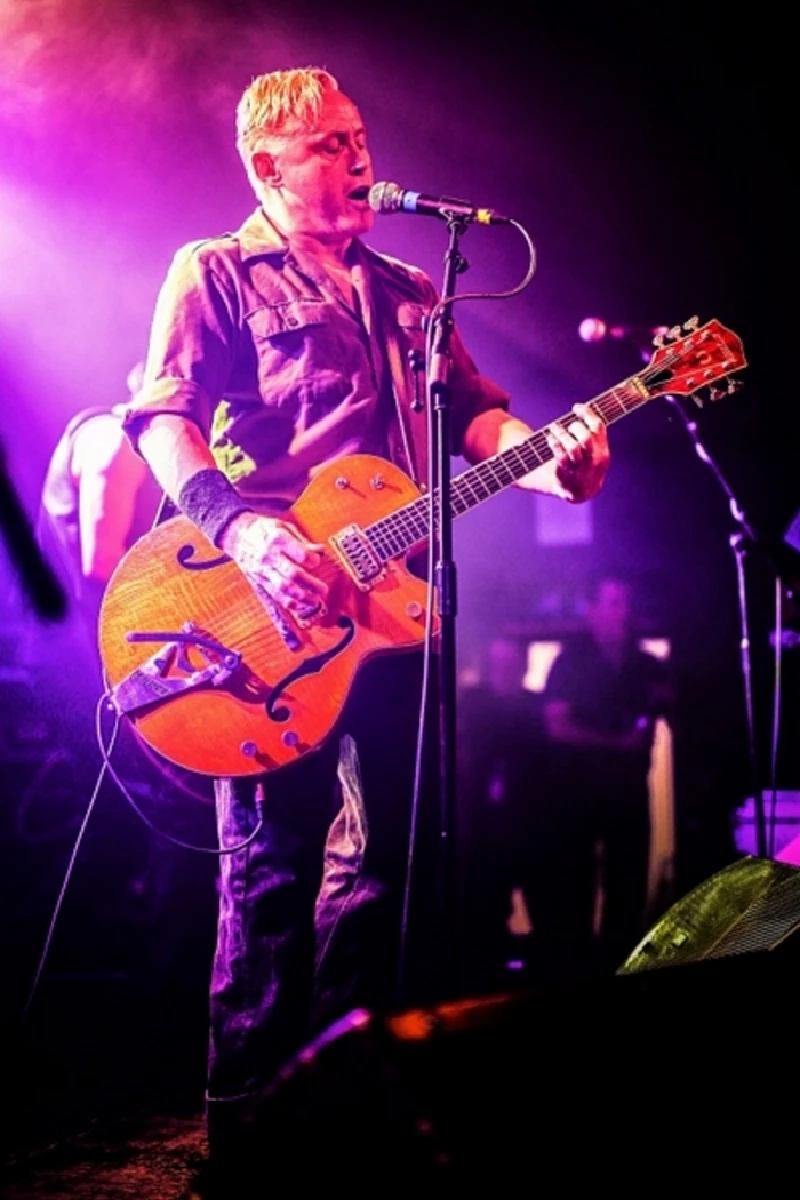
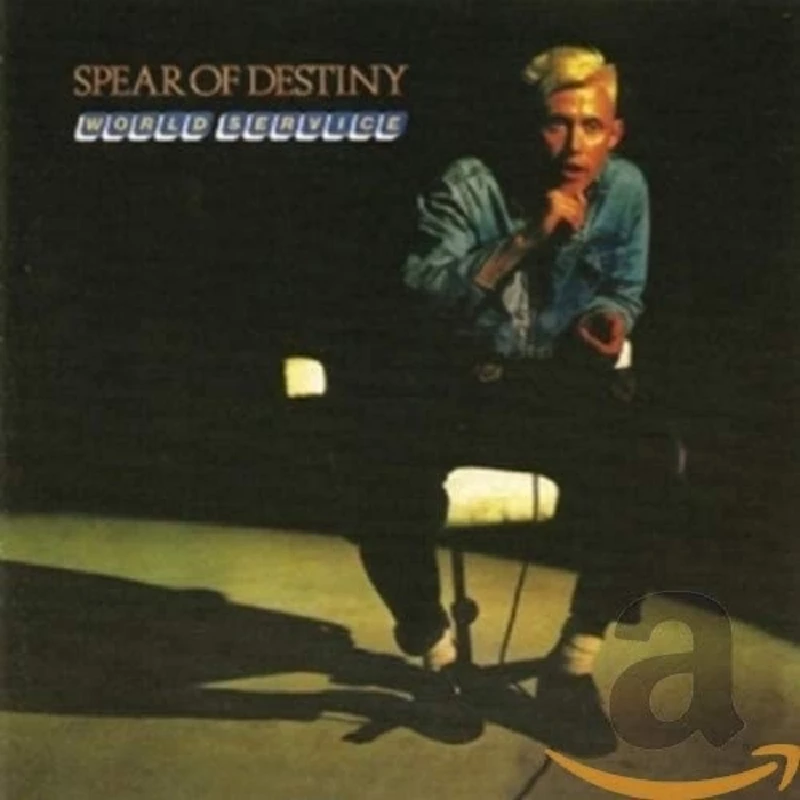
interviews |
|
Interview (2025) |
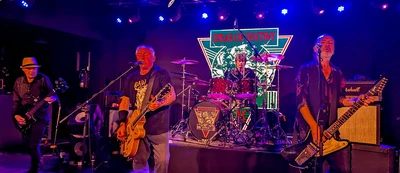
|
| Denzil Watson speaks to Spear of Destiny’s Kirk Brandon about their heavy-touring schedule and 'Janus', their new double album. |
live reviews |
|
Yardbirds, Grimsby, 29/9/2021 |
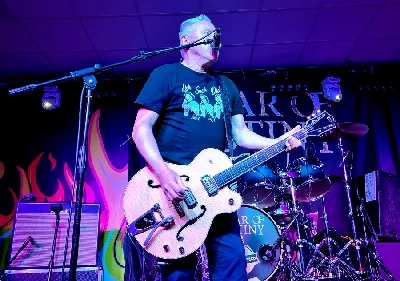
|
| Denzil Watson at Yardbirds in Grimsby watches an emotive performance from Spear of Destiny to celebrate the 35th anniversary of their third album, 'World Service'. |
| Greystones, Sheffield, 14/10/2014 |
soundcloud
reviews |
|
Tontine (2018) |
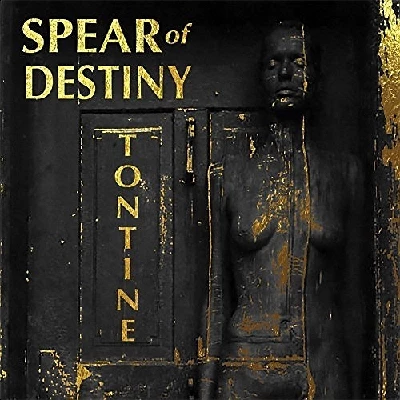
|
| Excellent twelfth album from Spear of Destiny which finds them returning to their post-punk beginnings but also maintaining their edginess |
most viewed articles
current edition
Carl Ewens - David Bowie 1964 to 1982 On Track: Every Album, Every SongArmory Show - Interview with Richard Jobson
John McKay - Interview
Colin Blunstone - Thalia Hall, Chicago, 16/7/2025
Billie Eilish - O2 Arena, London, 10/7/2025
Bathers - Photoscapes 1
Visor Fest - Valencia, Spain, 26/9/2025...27/9/2025
Loft - Interview
Sir Tim Rice - Interview
Robert Forster - Interview
previous editions
Manic Street Preachers - (Gig of a Lifetime) Millennium Stadium, Cardiff, December 1999Heavenly - P.U.N.K. Girl EP
Beautiful South - Ten Songs That Made Me Love...
Boomtown Rats - Ten Songs That Made Me Love....
Peter Perrett - In Dreams Begin Responsibilities Interview Part One
Oasis - Oasis, Earl's Court, London, 1995
Trudie Myerscough-Harris - Interview
Coldplay - Wembley Arena. London, 16/8/2022
Prolapse - Interview
Pixies - Ten Songs That Made Me Love...
most viewed reviews
current edition
Davey Woodward - Mumbo in the JumboSick Man of Europe - The Sick Man of Europe
Lucy Spraggan - Other Sides of the Moon
Suzanne Vega - Flying With Angels
Amy Macdonald - Is This What You've Been Waiting For?
Phew, Erika Kobayashi,, Dieter Moebius - Radium Girls
Bush - I Beat Loneliness
Blueboy - 2
Alice Cooper - The Revenge of Alice Cooper
Cynthia Erivo - I Forgive You
related articles |
|
Kirk Brandon: Live Review (2017 |
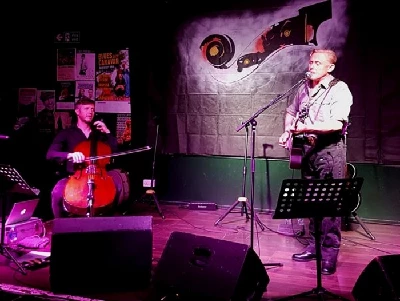
|
| Denzil Watson catches the opening night of Kirk Brandon taking his extensive back-catalogue of songs with Spear of Destiny and Theatre of Hate on the road in stripped-down form with vocals, guitar and cello from Sam Sansbury. |
Pennyblackmusic Regular Contributors
Adrian Janes
Amanda J. Window
Andrew Twambley
Anthony Dhanendran
Benjamin Howarth
Cila Warncke
Daniel Cressey
Darren Aston
Dastardly
Dave Goodwin
Denzil Watson
Dominic B. Simpson
Eoghan Lyng
Fiona Hutchings
Harry Sherriff
Helen Tipping
Jamie Rowland
John Clarkson
Julie Cruickshank
Kimberly Bright
Lisa Torem
Maarten Schiethart